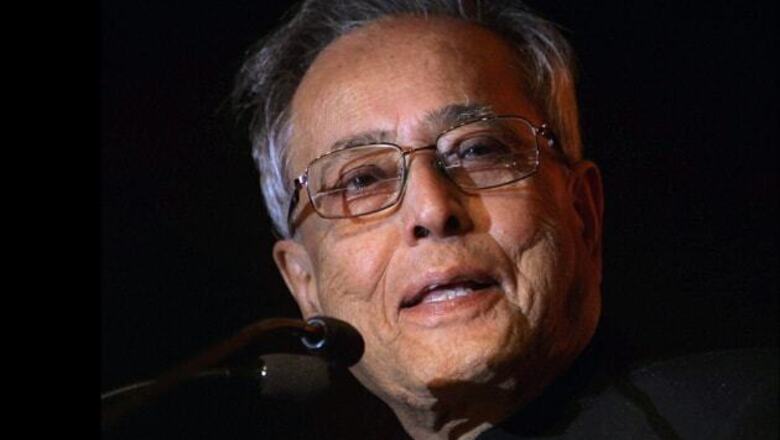
views
New Delhi: President Pranab Mukherjee, lauding the achievements of Jnanpith award winner Chandrashekhara Kambar in the Kannada language, said Thursday that Indian vernacular literature if promoted abroad would win "greater laurels" than the mark made by Indian writing in English.
In his address while presenting the 46th Bharatiya Jnanpith Award to Kambar, the president also said that philanthropists and the private sector must help in nurturing and promoting Indian literature and language.
"Literature cannot flourish based on the support of Government alone. Society at large, philanthropists and the private sector must play their role in nurturing and promoting the treasure of Indian languages and literature that is India's heritage.
"We need to do much more to recognize, nurture and promote excellence in writing in Indian languages. The creativity and talent that is widely present in Indian languages need better platforms and greater exposure. There is a need to take to the world Indian literature from our vernacular languages. Indian writing in English has sparked excitement and recognition across the world. Even greater laurels await us if we can expose the world to the flowering of creativity in our vernacular literature," he said, according to a Rashtrapati Bhavan statement.
President Mukherjee also said that with Kambar winning the eighth Jnanpith award in Kannada language, "Kannada has the highest number of awardees amongst regional languages and is next only to Hindi".
Kambar "joins the band of illustrious Kannada writers comprising Kuvempu, DR Bendre, K Shivarama Karanth, Masti Venkatesha Iyengar, VK Gokak, UR Anantha Murthy and Girish Karnad who have received this award in the past. These writers and their works are a glowing testimony to the richness of Kannada literature."
He praised Kambar as an icon "not just in Karnataka but across India".
"I am delighted to know that a good number of his works have been translated into English and prominent Indian languages like Hindi, Marathi, Telugu, Tamil, Punjabi, Malayalam and Rajasthani. The Sahitya Akademi is doing commendable work to promote translations between Indian languages. But, that is not enough. State Governments, authors, translators, lovers of literature and the publishing industry should work together to ensure that the literature of our vernacular languages, both modern and classical, is available to readers in all corners of India. I am sure Dr Kambar with his vast experience can guide efforts in this regard," he said.



















Comments
0 comment